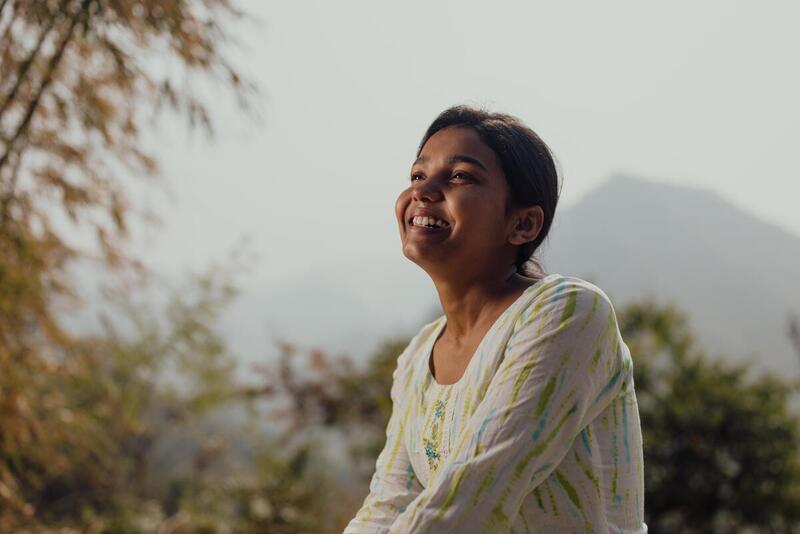
“It is very difficult for females, adolescents, like us to survive like this, due to societal structure. Because in our community, even now, caste discrimination, domestic violence, sexual violence, there are many. As a result, early marriage is happening. Many adolescent girls are leaving school. In many families, women are being beaten, and becoming the victim of violence. I am terrified, realising that my community is like this.” – Susma, 18
Susma lives in the rural mountains of Nepal, where it’s expected that girls will marry, or look after their parents, instead of going to school.
But Susma is defiant and is leading a wave of change – from her phone.
Despite being born into the dalit (untouchable) caste of Nepal – considered to be the lowest level caste and the most marginalised – Susma has become a champion for girls’ rights, both in person and online.
Susma is vocal about the harms girls face. Now a social media influencer, she’s built a healthy following of young people who strive for education and a community where they can express themselves.
Breaking barriers
During the day, in between her studies, Susma leads self defence classes at the local primary school. Then she visits the high school, teaching teens (including boys) how to make sanitary pads, so girls don’t have to miss school during their period.
In traditional Nepalese culture, menstruation is taboo but that’s not stopping Susma. She’s doing whatever she can to break down the barriers preventing girls from having the same rights as boys.
Tackling misperceptions
Susma’s community wasn’t always receptive. She remembers what it was like to be a girl from the lowest caste. Even though she attended school, she was often sent home on holy days because she was considered too “dirty” to interact with the worship ceremonies.
The impact moments like this must have on young teenage girls, trying to find their identity, could have been detrimental to Susma but instead she used her experience to tackle deep-seated perceptions.
Susma says she always dreamt of a life beyond getting married and keeping a house. She didn’t want to give up her education but didn’t know what she could do. Thankfully, with a supportive family, she got the opportunity to take part in World Vision training and found a way to speak out.
“I want to be the example. I wish to create a thousand adolescent girls like me”
- Susma
Today, thanks to World Vision training, Susma knows her rights and can speak out when something in her community needs addressing.
“To not being able to express our thoughts freely and not being able to interact with your friends freely, feels very bad,” she says. “Everyone is getting married. Everyone is doing child marriage. No one has completed their education.”
“This society has so much caste discrimination that there is no positive example to show. I want to be the example. I wish to create a thousand adolescent girls like me.
“I feel that, if you want to change the world, stand with a thousand Susma’s like me.”
A wide influence
Susma now shares her learnings online and has been so successful that she’s been invited by other organisations to lead their training and facilitation.
Her influence doesn’t stop at social media either. Susma submitted an appeal to the local government urging them to take action to end child marriage. And recently, she’s taken her quest to government, where she’s leading a policy initiative to prevent child marriage.
Studying for a bachelor’s degree, Susma is now funding herself through college. She’s determined to become a teacher and help shape the next generation of girls.
Fighting for girls’ rights
Through Child Sponsorship, supporters of World Vision are helping communities bring an end to harmful practices like child marriage and gender discrimination.
Together, we’re fighting for girls’ rights. Girls like Susma.
Her right to continue studying.
Her right to not get married early.
Her right to define her future.
Will you join us as we fight for girls’ rights?